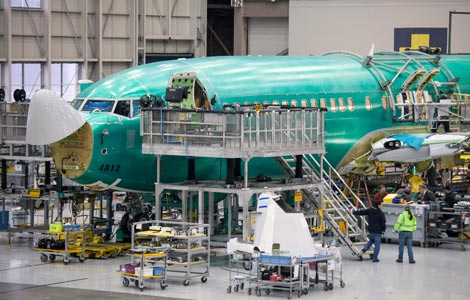China's new billionaires may have a lot to learn
Updated: 2013-12-02 08:27
By Zhang Yuwei(China Daily USA)
|
||||||||

The increasing numbers of Chinese billionaires have been making the headlines lately, mainly for taking the lead in certain categories — average young age, self-made, and pace of growth. But for the growing number of mega-rich in the world's second-largest economy, what's really being closely watched — experts say — is how that wealth will be handled.
A recent global study — Wealth-X and UBS Billionaire Census 2013— showed that 157 billionaires in China with total net worth of $384 billion and have an average age of 53 — nine years younger than the global billionaires' average age.
"It is a positive sign that China's new crop of billionaires is so much younger than the global average, indicating a society that is opening to innovation and new ways of doing business," said Jeremy Haft, an adjunct professor at Georgetown University and an entrepreneur who has run businesses in China for more than 15 years.
Nearly 90 percent of China's billionaires made their own fortune, which is the highest percentage of self-made billionaires in the world. The other 5 percent inherited their wealth, and the remaining 6 percent inherited and grew their wealth, according to the wealth survey.
Frank Lavin, a former US under secretary of commerce for international trade and founder of Export Now, which helps companies sell on-line in China, said the trend is a "natural by-product of rapid economic growth".
"When the entire economy moves ahead rapidly, there will be a group that has exactly the right product or business model and is able to capture significant market share," said Lavin.
"China is a rapidly-growing economy so that society is considerably more prosperous today than a generation ago. A generation ago there was not sufficient prosperity to produce many (or any) billionaires," he added.
"China's evolving economy provides entrepreneurs a multitude of opportunities as urbanization continues, domestic consumption rises and the rapid ascent of e-retailing," said Brendan Ahern, managing director of KraneShares, a New York-based boutique asset management firm.
The 2013 Forbes China Rich List showed that 168 billionaires made the list — up from 113 billionaires from last year.
With a total net worth of $14.1 billion (as of October), Wang Jianlin, 59, chairman of Dalian Wanda Group, China's biggest commercial real estate developer, made No 1 on the rich list. Wanda made inroads into the US by acquiring US theater chain AMC last year for $2.6 billion. Earlier this year, Wang announced that the company will launch a $1 billion project to build a five-star hotel in New York. Wang, who topped a Forbes' China Philanthropy List two years ago, sits at No 3 on this year's list, with donations of $42 million to charities ($26 million less than Hui Ka Yan, another real-estate tycoon in China).
Compared to US counterparts, there are some differences. Bill Gates, 58, who is worth $72 billion (as of September), topped the US rich list this year for the 20th straight year. Gates, co-founder of Microsoft and now a full-time philanthropist running the Bill & Melinda Gates Foundation, donated more than $28 billion (some 43 percent of his own net worth) as of January.
Lavin said philanthropy was a natural path for the newly rich Chinese to follow.
"We have seen this pattern in the US and Europe and it would make sense for it to emerge in China as well," he said. "These billionaires have energy, ideas, and resources — so if they want to help tackle societal problems such as pollution or rural poverty, this development would help the entire country."
The emerging and growing Chinese billionaires will most likely follow their counterparts in the US and Europe eventually and behave like responsible contributors to society, but they may have to go through a bit of a learning curve beforehand.
Billionaires, regardless where they are from, should always remember that their "behavior is being observed by the entire society and have to make a special effort to be polite and to avoid being perceived as arrogant or privileged," Lavin noted.
"On the one hand, we all tend to respect the individual success stories of a businessman who builds something through his own creativity and perseverance. On the other hand, no one likes flagrant displays of wealth or rude behavior," said Lavin.
Ahern said China's Industrial Revolution, which is taking place now, allows talented Chinese to capitalize on opportunities, including those who are getting rich.
"China's unique culture and history will mold their high-net-worth individuals in their own model," said Ahern.
Contact the writer at yuweizhang@chinadailyusa.com
Most Viewed
Editor's Picks

|

|

|

|

|

|
Today's Top News
Chinese chicken gets a boost
Lawmakers in move to tackle espionage threat
Airplanes' skirmish still debated
Mugabe a frequent visitor to China
Australian MP apologizes for insulting Chinese
US hypersonic weapon destroyed seconds after launch
Cathay Pacific to launch new Hong Kong, Boston route
Consulate pioneers Facebook-diplomacy
US Weekly

|

|














